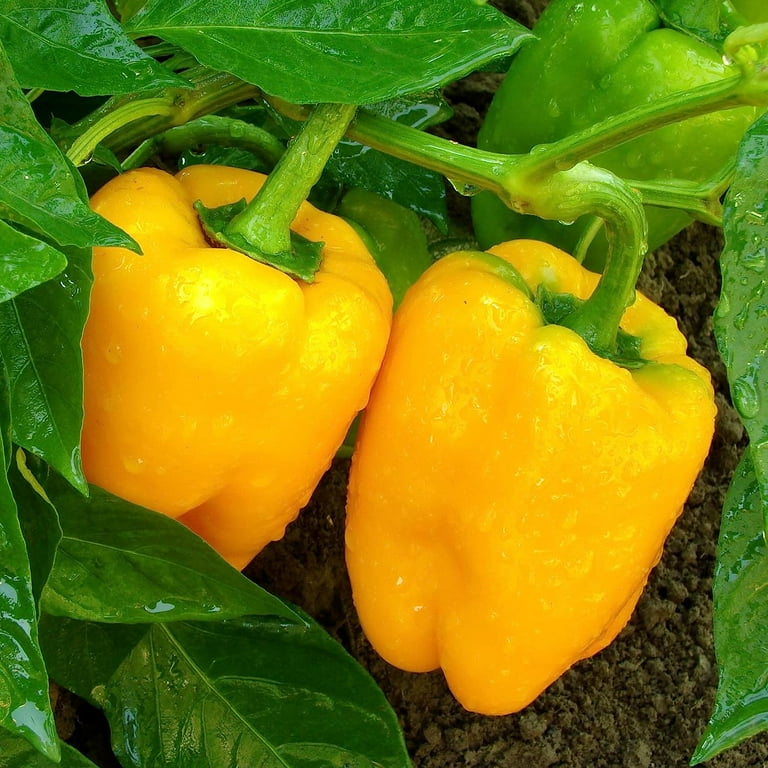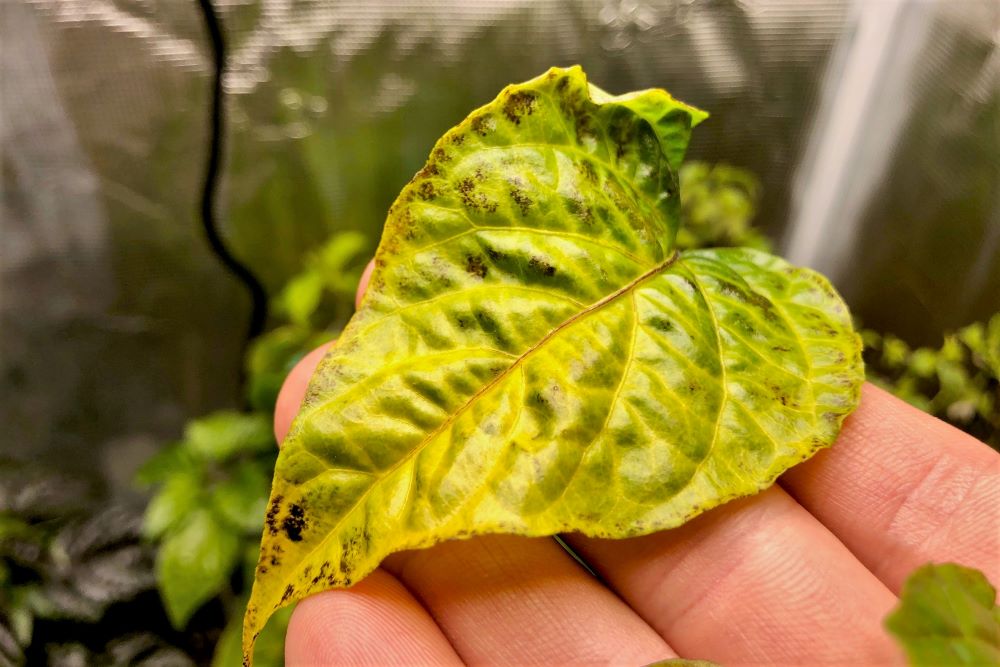Best Fertilizers for Peppers: Increase Development and Taste Naturally
Best Fertilizers for Peppers: Increase Development and Taste Naturally
Blog Article
Organic Vs. Synthetic Fertilizers: Which Is Best for Supporting Healthy Pepper Plants?
In the realm of nurturing healthy pepper plants, the option in between synthetic and organic fertilizers stands as a pivotal decision with far-reaching implications. While both alternatives purpose to provide important nutrients to support plant development, the subtleties of their influence on the soil, plant health, and the setting trigger a discussion that mirrors throughout the gardening community. Understanding the distinctive benefits and prospective challenges of each plant food type is crucial for pepper farmers looking for to optimize their yields while keeping a lasting and eco-conscious approach.
Advantages of Organic Plant Foods
Organic fertilizers offer a lasting and environmentally-friendly approach to beneficial pepper plants, offering necessary nutrients without using artificial chemicals. These all-natural fertilizers are originated from organic sources such as garden compost, manure, bone meal, and algae, promoting soil wellness and biodiversity. Unlike synthetic plant foods, organic alternatives release nutrients gradually, guaranteeing a well balanced and consistent supply for pepper plants to thrive.
One considerable benefit of organic plant foods is their ability to enhance dirt framework and water retention. By improving soil health, natural plant foods promote valuable microbial activity, which helps in nutrient uptake by pepper plants. Additionally, natural fertilizers minimize the threat of chemical run-off, safeguarding water resources from pollution and securing the setting.
Additionally, natural plant foods add to long-term soil fertility by advertising the development of advantageous soil microorganisms. These microorganisms help break down raw material, launching nutrients in a type that is easily accessible to pepper plants. best fertilizers for peppers. By promoting a healthy and balanced dirt ecosystem, organic fertilizers sustain lasting pepper cultivation methods that profit both plants and the environment
Drawbacks of Synthetic Plant Foods
Artificial plant foods, in contrast to their organic equivalents, posture numerous disadvantages when utilized to nurture pepper plants, influencing both plant wellness and ecological sustainability. One significant downside of artificial plant foods is their propensity to seep nutrients from the dirt rapidly. This fast leaching can cause vitamins and mineral imbalances in the soil, causing plants to struggle with deficiencies or poisonings. Furthermore, artificial plant foods can damage valuable soil microorganisms, such as earthworms and beneficial microorganisms, interfering with the dirt ecological community's equilibrium.
Additionally, the overuse of synthetic fertilizers can contribute to water air pollution. Excess plant foods not taken in by plants can remove right into water bodies, causing eutrophication, where algae flowers deplete oxygen degrees in the water, hurting aquatic life. Artificial plant foods are usually acquired from non-renewable sources, such as fossil fuels, adding to carbon discharges and environmental degradation throughout their production.
Nutrient Absorption Contrast
Efficient nutrient absorption plays a vital function in the overall health and wellness and growth of pepper plants. When contrasting synthetic and natural fertilizers in regards to nutrient absorption, organic plant foods have the advantage of giving an extra well balanced and slow-release resource of nutrients (best fertilizers for peppers). Organic plant foods consist of a variety of macro and trace elements that are not just advantageous for the plants yet additionally promote healthy dirt microbial task, which assists in nutrient uptake. On the other hand, artificial fertilizers frequently provide a fast launch of nutrients, which can lead to leaching and overflow, causing lower nutrient absorption rates by the plants.
Additionally, organic fertilizers enhance dirt framework and water retention capability, permitting pepper plants to accessibility nutrients much more effectively. This improved dirt quality assists in root growth, enabling better nutrient absorption. Artificial plant foods, although initially increasing plant growth because of their high nutrient concentrations, might hinder lasting nutrient absorption by degrading soil health and wellness with time.
Ecological Impact Factors To Consider

On the other hand, artificial fertilizers, although often more right away offered and focused to plants, can have harmful results on the environment otherwise applied effectively (best fertilizers for peppers). Their manufacturing calls for high power inputs, leading to greenhouse gas exhausts and adding to climate change. The overflow of excess synthetic plant foods can contaminate water sources, leading to eutrophication and hurting aquatic ecological communities.
Finest Fertilizer Practices for Peppers
To accomplish this, it is crucial to adhere to best plant food practices tailored to the certain demands of pepper plants. One critical practice is to do a soil test prior to applying any kind of plant foods.
An additional essential practice is to fertilize pepper plants at the correct time. Normally, peppers profit from getting fertilizer at websites growing and afterwards go to my site once more when they start to blossom. Over-fertilizing can result in vitamins and mineral inequalities and hurt the plants, so it is crucial to adhere to suggested application rates.
In addition, choosing a well balanced plant food with an NPK ratio that matches pepper plants' demands is basic. Organic fertilizers, such as compost or manure, can be outstanding choices as they launch nutrients slowly and boost dirt framework over time. Synthetic plant foods can offer a fast nutrient boost when required. Inevitably, integrating organic and artificial fertilizers sensibly can help support healthy and balanced pepper plants while minimizing ecological influence.
Conclusion

Organic fertilizers use an environmentally-friendly and learn the facts here now sustainable strategy to nourishing pepper plants, supplying essential nutrients without the usage of artificial chemicals. Unlike synthetic fertilizers, natural alternatives release nutrients gradually, making certain a stable and well balanced supply for pepper plants to prosper.
Artificial fertilizers, in contrast to their natural equivalents, pose various downsides when made use of to nourish pepper plants, impacting both plant health and wellness and ecological sustainability. When contrasting synthetic and organic plant foods in terms of nutrient absorption, natural plant foods have the benefit of providing an extra balanced and slow-release source of nutrients.Moreover, natural plant foods boost dirt structure and water retention capacity, allowing pepper plants to access nutrients much more effectively.
Report this page